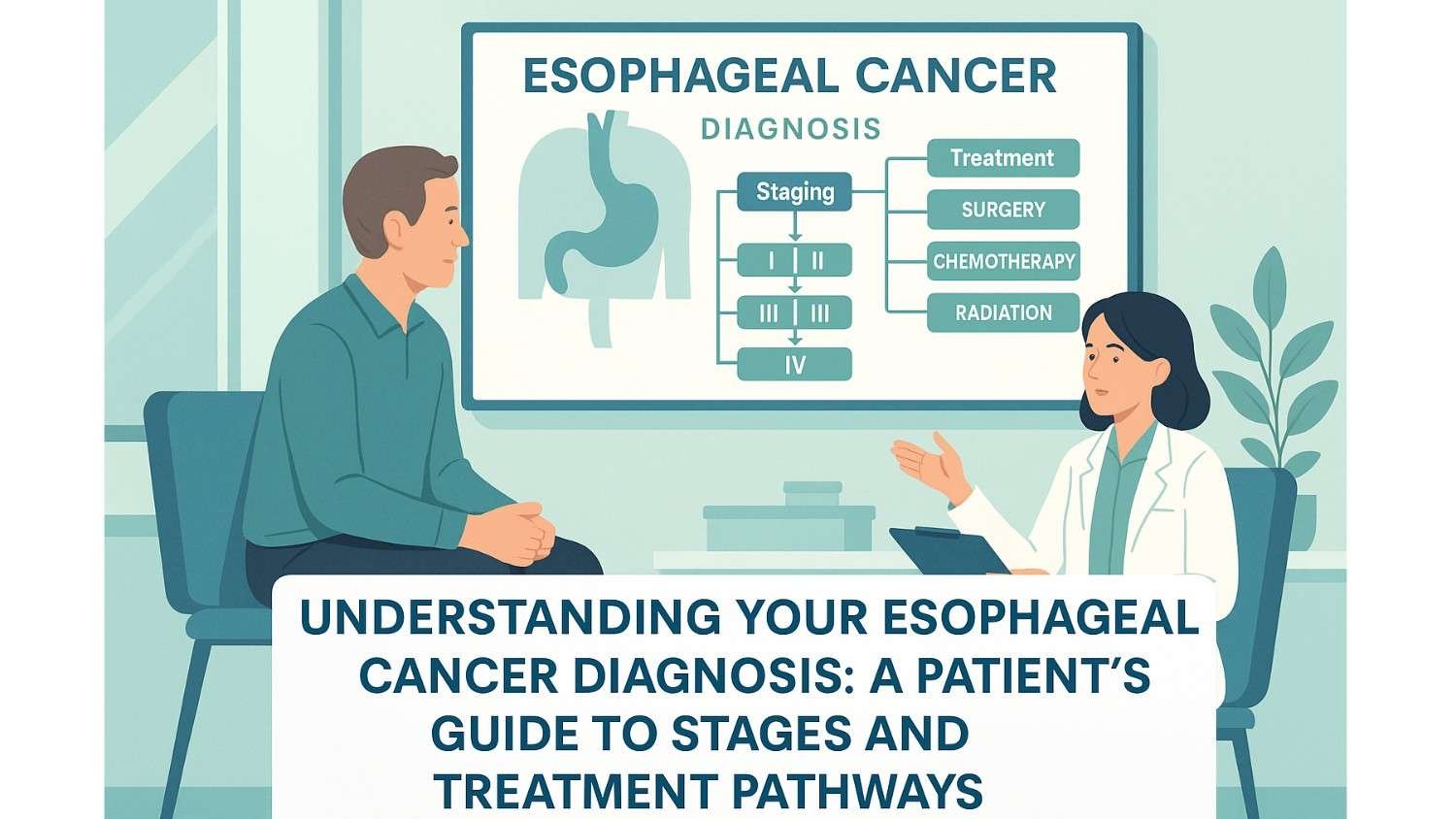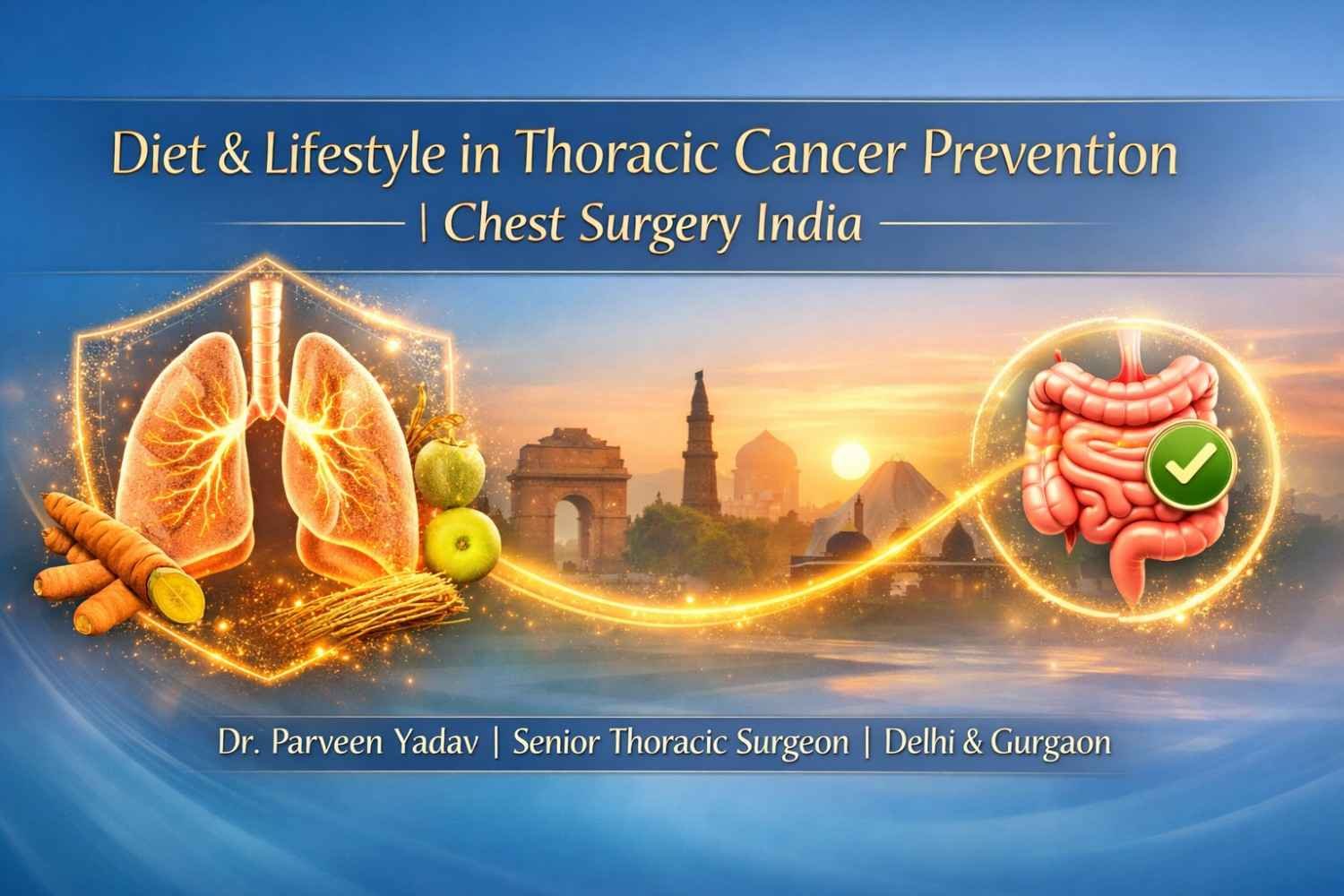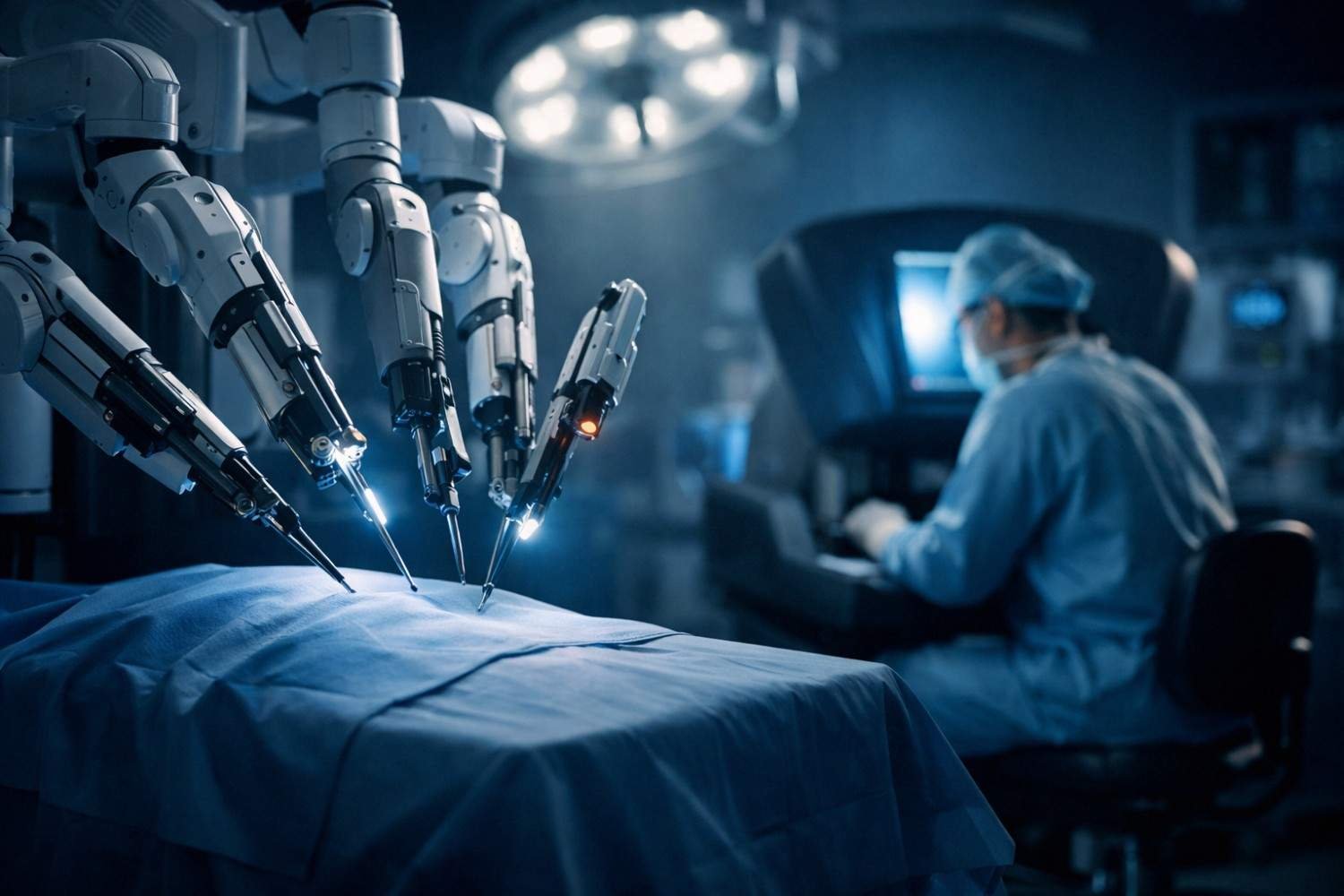

Receiving a cancer diagnosis is a moment that changes everything. The world can suddenly feel uncertain and overwhelming, filled with complex medical terms and difficult questions. As a thoracic surgical oncologist, I have sat with countless patients and their families in my clinic, and I understand the fear and confusion you may be feeling right now.
My first message to you is one of hope. Over my years of practice, I have seen incredible advancements in how we understand and treat esophageal cancer. We have more effective, less invasive, and more personalised options than ever before.
The purpose of this guide is to walk with you through the initial steps of this journey. I want to demystify the language of your diagnosis, explain what the "stage" of your cancer means, and outline the modern treatment pathways available. Think of this as the beginning of a conversation—a way to arm you with knowledge so you can face the path ahead with confidence and clarity. You are not alone in this. My team and I are here to be your partners in care every step of the way.
When you receive your diagnosis, one of the first things your pathology report will identify is the type of esophageal cancer. While there are several rare types, the vast majority fall into two main categories, and knowing which one you have is crucial because it can influence the treatment plan.
Your medical team will confirm your specific type through a biopsy, which is the first step in developing a treatment plan just for you.
Perhaps the most confusing part of any cancer diagnosis is understanding its "stage." The staging system is simply a universal language doctors use to describe exactly where the cancer is, how large it is, and whether it has spread. The most common system is the AJCC (American Joint Committee on Cancer) TNM system.
It can seem technical, but the concept is straightforward. Let's break it down with a simple analogy of a plant in a garden.
The 'T' stage describes the size and depth of the primary tumour. Think of the wall of your esophagus as having several layers of soil.
The 'N' stage tells us if the cancer has spread to nearby lymph nodes. Lymph nodes are small glands that are part of your immune system.
The 'M' stage shows whether the cancer has metastasized, or spread to distant parts of the body.
By combining the T, N, and M scores, your oncologist assigns an overall stage, from Stage 0 (the earliest) to Stage IV (the most advanced). This overall stage is the critical roadmap that guides our treatment decisions.
It is essential to understand that there is no one-size-fits-all treatment for esophageal cancer. The best approach for you will depend on the cancer's type, its stage, its location, and your overall health. Most experts agree that a multidisciplinary team—involving a surgical oncologist, a medical oncologist, and a radiation oncologist—provides the best outcomes.
Here is a general overview of the treatment pathways we consider for each stage.
When cancer is detected at its earliest stages (Tis or some T1 tumours), it is often limited to the innermost lining of the esophagus. In these cases, we can frequently remove the cancer completely without major surgery.
These procedures are commonly performed endoscopically (using a thin, flexible tube passed down your throat) and may include:
The goal here is a complete cure with the least possible impact on your body.
For cancers that have grown deeper into the esophageal wall or have spread to nearby lymph nodes but not to distant organs, a multi-modal approach is often the gold standard. Most studies show that combining treatments yields better results than using just one alone.
A typical treatment plan for these stages often involves:
Surgery for esophageal cancer is complex and requires the highest level of precision. Traditionally, this was done through a large incision in the chest and abdomen. Today, however, we have far superior technology.
For patients seeking Esophageal Cancer treatment in Gurgaon or Esophageal Cancer treatment in Delhi, I am proud to offer minimally invasive esophagectomy using the Da Vinci robotic surgical system. This is not science fiction; it is the modern standard of care that transforms the patient experience.
Instead of a large incision, I perform the entire operation through a few small keyholes. I sit at a console that gives me a magnified, 3D, high-definition view inside the chest, and I control tiny robotic instruments that have a greater range of motion than the human hand.
For you, the patient, the benefits are immense and tangible :
This advanced technology, in the hands of an experienced surgeon, allows us to perform a more precise cancer operation while being much gentler on your body.
When esophageal cancer has spread to distant organs (M1), the primary goal of treatment shifts from cure to control. The focus is on slowing the cancer's growth, managing symptoms, and sustaining the best possible quality of life.
Surgery is not typically the main treatment at this stage. Instead, we rely on systemic therapies that travel through the bloodstream to treat cancer wherever it is in the body. These may include:
In some cases, radiation therapy or endoscopic procedures (like placing a stent) may be used to relieve symptoms like difficulty swallowing.
Your cancer treatment is more than just surgery, radiation, or chemotherapy. A crucial part of your journey is supportive care, which focuses on your overall well-being.
Nutrition is paramount. Esophageal cancer and its treatments can make it difficult to eat, leading to weight loss. My team includes dedicated dietitians who will work with you before, during, and after treatment. They will help you with special diets, nutritional supplements, and, if necessary, managing a temporary feeding tube to ensure your body has the strength it needs to heal.
We also focus on managing side effects, controlling pain, and delivering emotional and psychological support for you and your family. This holistic approach is crucial for a successful recovery.
As you move forward, it's important to be an active participant in your care. Don't be afraid to ask questions. Here are a few to help you start the conversation with your medical team:
I know this is a lot of information to take in at a difficult time. But knowledge is power. By understanding your diagnosis and the path ahead, you can move from a place of fear to a position of strength.
The journey through cancer treatment is a marathon, not a sprint. There will be challenges, but there is also immense reason for hope. With today's advanced diagnostics and treatments, we are achieving better outcomes for our patients every day.
If you or a loved one is facing an esophageal cancer diagnosis, please know that you do not have to walk this path alone. My team at Artemis Hospital and I are dedicated to providing not only world-class surgical care but also the compassionate, comprehensive support you deserve.
To discuss your diagnosis and create a personalised treatment strategy, I invite you to schedule a consultation with my team today.

18+ Yrs Exp | 5,700+ Thoracic & Robotic Cancer Surgeries
Dr. Parveen Yadav is a Director and Senior Consultant in Thoracic and Surgical Oncology, specializing in minimally invasive and robotic lung and esophageal surgeries, with advanced training from AIIMS and Tata Memorial Hospital.
View Full Profile Pain After Thoracic Surgery: Tips for Smooth Recovery
Pain After Thoracic Surgery: Tips for Smooth Recovery
 Diet & Lifestyle for Thoracic Cancer Prevention | Dr. Parveen Yadav
Diet & Lifestyle for Thoracic Cancer Prevention | Dr. Parveen Yadav
 Robotic Thoracic Surgery: How Da Vinci Technology is Revolutionizing Chest Procedures
Robotic Thoracic Surgery: How Da Vinci Technology is Revolutionizing Chest Procedures
Struggling with pain after chest surgery? Dr. Parveen Yadav shares expert recovery tips, causes of shoulder pain, PTPS signs, and what your discharge sheet won't tell you.
Discover how diet, breathing exercises & daily habits help prevent and recover from thoracic cancer. Expert insights from Dr. Parveen Yadav, Chest Surgery India
Discover how Da Vinci robotic surgery is transforming chest procedures in Gurgaon. Less pain, faster recovery & expert care by a certified thoracic surgeon
Copyright 2026 © Dr .Parveen Yadav all rights reserved.
Proudly Scaled by Public Media Solution!